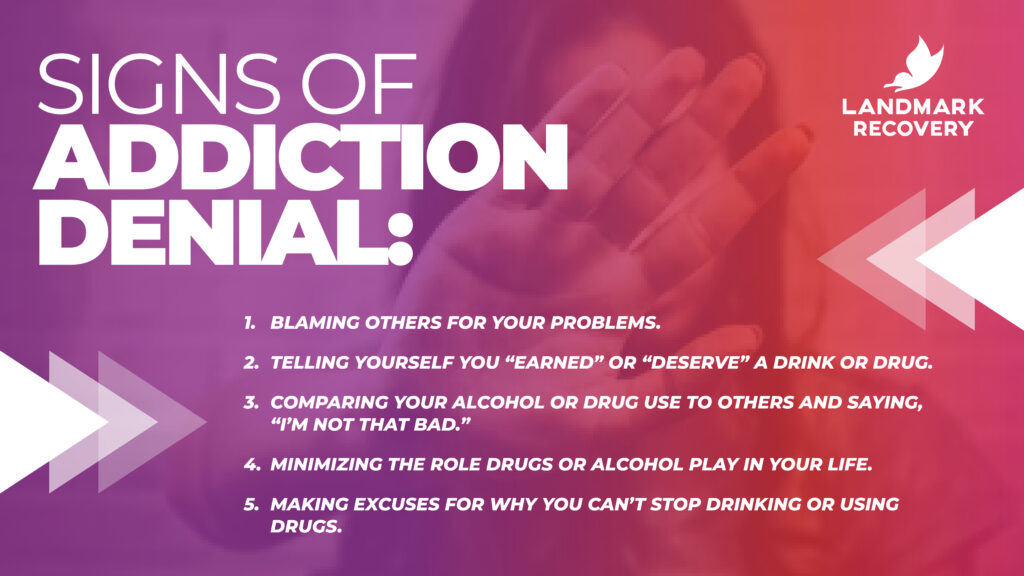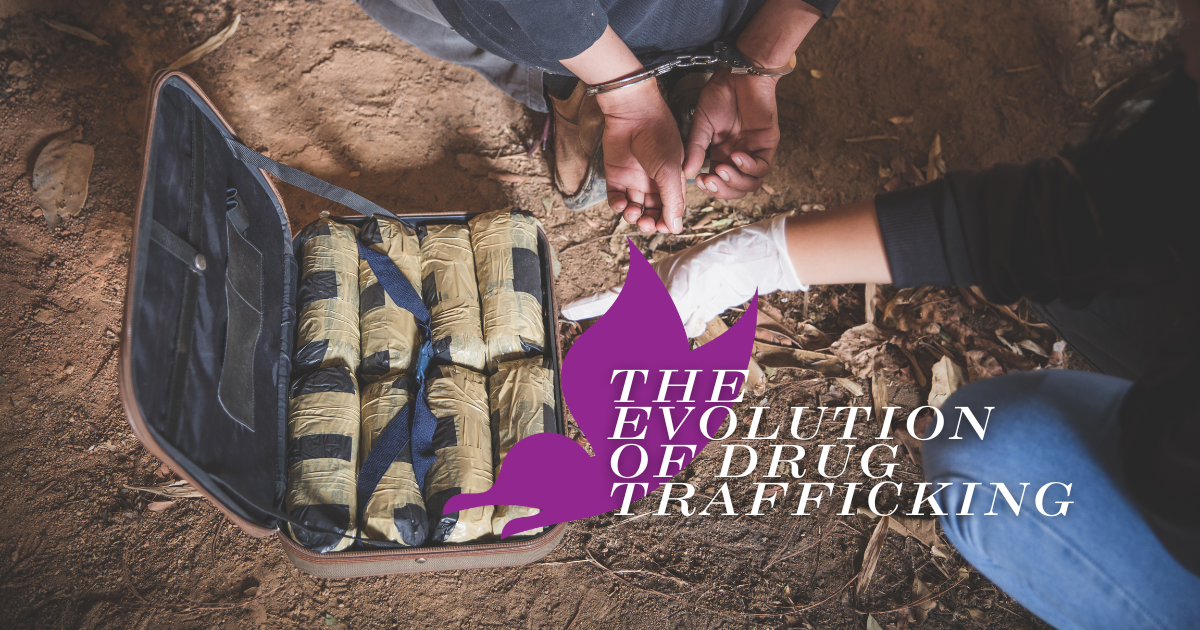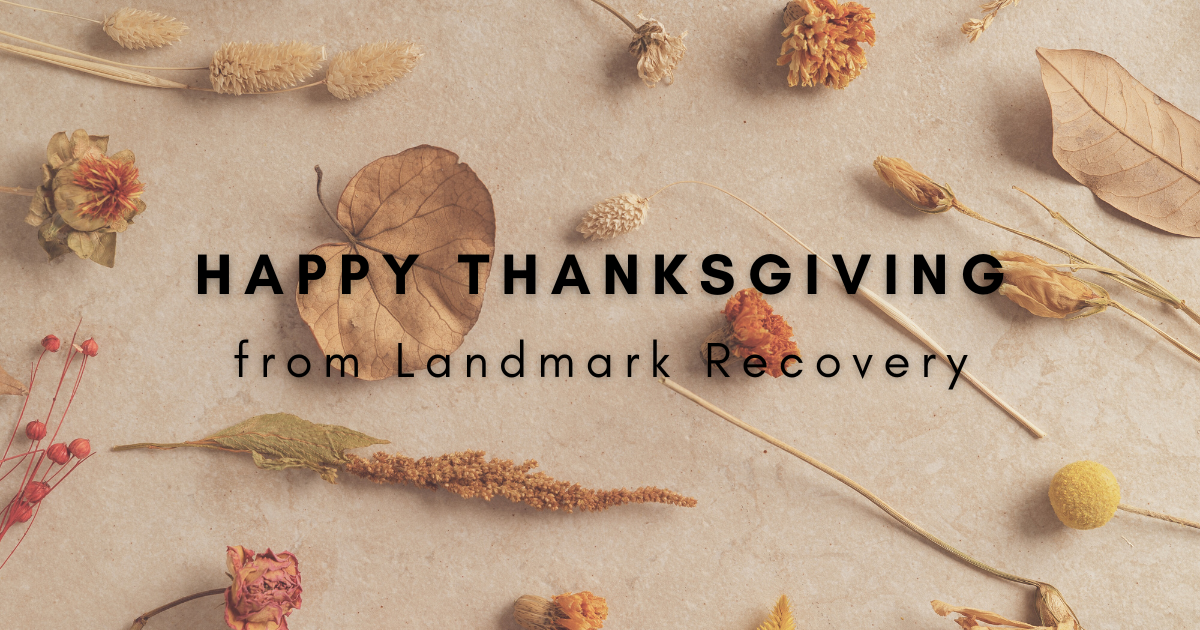Addiction recovery is tough, but you have to take the first step to achieve a positive outcome. Getting over the speedbumps in the recovery path is a huge part of the stages of addiction recovery. Don’t deny addictions; admitting you have an addiction to drugs or alcohol is an important first step towards getting help and ultimately finding recovery. Yet many people struggle to admit they have an addiction. Instead, they deny it, by ignoring, downplaying or distorting reality. Denial is one of the biggest hurdles in recovery from drug or alcohol addiction.
People with substance use disorders find ways to rationalize their habits and often have a hard time dealing with their emotions. So, why do people deny their addictions?
Click one of the following links to skip down to a section:
- Denial and the Cycle of Addiction
- How Denial Diverts Users away from Recovery
- The Self-worth Issue in Addiction
- How to Overcome Denial: Strategies for Recovery
- Anecdotes on Acknowledging Addiction
- The Role Stigma Plays in Addiction
- Lack of Education and Awareness about Addiction
Why Denial is An Addiction Symptom
When it comes to substance use addictions, denial is a common defense mechanism used to ignore, excuse or rationalize drug and alcohol use. While it can seem helpful in the short term for coping with stressful or traumatic situations, prolonged denial can have harmful consequences. The American Psychological Association defines denial is a way the mind deals with “unpleasant thoughts, feelings, wishes or events” by ignoring or excluding them from “conscious awareness.” It’s viewed as an unconscious process, meaning most people in active addiction don’t plan out a denial strategy.
In particular, people who struggle with addiction often use denial to avoid acknowledging the negative impact their substance use has on their lives. For example, those who rely on drugs and alcohol may see these substances as a way to escape their emotions and problems, rather than as the root of their issues. They may also only see it this way unconsciously, and their conscious minds may not typically think of it this way.
It’s the same unconscious effect that produces bias. Deeply rooted religious beliefs, for instance, can make you biased against evidence of things that contradict those beliefs because you’re dependent on them. In that case, you wouldn’t realize it was a result of bias. You would simply feel as though the evidence didn’t make sense. Unconscious bias in favor of your dependence on alcohol, therefore, would similarly keep you from accepting that the dependence was an addiction.
Denial and the Cycle of Addiction
Unfortunately, denial can perpetuate the cycle of addiction and prevent individuals from seeking the help they need. It often takes a major health event, legal trouble or strained relationships for someone to recognize the extent of their addiction and seek treatment.
While denial can provide temporary relief, it ultimately prevents individuals from fully confronting and overcoming their problems. Recognizing and acknowledging the reality of addiction is the first step toward recovery and living a healthier life.
Signs of Addiction Denial
Just as there are signs of addiction, there are signs of someone in denial. These signs of denial include:
- Blaming others for your substance use problems.
- Telling yourself you “earned” or “deserve” a drink or drug.
- Comparing your alcohol or drug use to others and saying, “I’m not that bad.”
- Minimizing the role drugs or alcohol play in your life.
- Making excuses for why you can’t stop drinking or using drugs.
How Denial Diverts Users Away from Recovery
The phenomenon of denial explains why people in active addiction continue to use drugs or drink alcohol despite negative consequences, according to a 2016 study by Hanna Pickard from the University of Birmingham’s Department of Philosophy. Consequences in this case are events like job loss, health issues or strained relationships. When they stay ignorant of the consequences, they can’t make informed decisions.
It’s well-established that cognitive biases heavily influence decision-making processes. People also often hold certain beliefs unconsciously because they attach value to them. Denial can be defined as a selective ignoring of information.
It’s a form of motivated belief or self-deception that detaches individuals from reality according to widely cited 2010 research from the University of Birmingham. Psychological processes such as distraction, forgetfulness and repression may also serve as variations of denial. Denial is often considered a defense mechanism used by individuals with substance use disorders according to a 2011 study published on PsycNet. It’s used to prevent threatening emotions from entering their conscious thought.
Those who struggle with addiction often lack the capability to cope with negative emotions and may erect intransigent defenses to avoid feeling them. This protection often comes at a high cost, as individuals may be unable to seek out help.
The Self-worth Issue in Addiction
Addiction can also be a source of terrible shame, self-hatred and low self-worth. Admitting the harm caused by your own addiction can not only be difficult, it may even be terrifying. Substance abuse may serve as a means of numbing oneself to these negative emotions. Denial, therefore, protects individuals from the psychological pain and distress associated with quitting their addiction.
While denial plays a critical role in addiction, it is important to note that some individuals may lack knowledge about the negative consequences of their actions due to impaired self-awareness. Chronic drug abuse has been linked to impaired self-awareness and denial of the severity of addiction, making it difficult for individuals to seek out treatment.
In summary, denial is a significant factor in explaining why addicts continue to use drugs despite harmful consequences. Acquiring knowledge about the negative outcomes of substance abuse is a crucial step in recovery.
Since denial safeguards against psychological pain, it’s essential to provide substance abusers with effective tools for coping with their emotions. For example, the first step in Alcoholics Anonymous is to admit that one has a problem and begin to seek out help. By acknowledging the negative consequences of their actions, individuals can take an important step towards recovery.
Addiction Denial Behaviors
In cases of addiction, individuals may resort to various behaviors as a form of denial. These behaviors may include minimizing the severity of their addiction, rationalizing their actions, or engaging in self-deception.
Minimizing involves downplaying the addiction and dismissing concerns raised by others. Rationalizing involves justifying the addiction through various reasons, such as stress relief or the need for a reward. Self-deception is a powerful denial mechanism where individuals convince themselves that their addiction is not as severe as it really is.
However, continued denial of addiction can lead to harmful consequences, such as health issues and damaged relationships. It is important for individuals to recognize and acknowledge their addiction in order to seek help and overcome it.
Even after admitting you have an addiction, the battle against denial isn’t over. Many patients seek affordable addiction treatment by calling an addiction specialist at 888-448-0302. While in drug and alcohol rehab, though, they still don’t have realistic perspectives of their addiction. That’s what makes targeted, clinical therapy so necessary.
How to Help An Addict in Denial: Strategies for Recovery
Denial is a powerful force that can prevent individuals from recognizing and addressing their addiction. However, there are strategies that can help break through this barrier and pave the way for them to get help and find sustained recovery from substance abuse.
One effective approach is journaling, which involves reflecting on your feelings, fears, and recent challenges in order to gain insight into the role of alcohol and drugs in your life. By considering the potential consequences of continued substance use and the benefits of changing these habits, you can start to see the impact of your addiction. These impacts may be seen, not just in your life, but the lives of your friends and family.
Another approach is to write a list of what alcohol or drugs is really doing for you. Explain why you continue to use. Ask yourself what would happen if you stopped. Would that be a good or bad thing? What benefits could come from you stopping drug use or drinking?
Formal Approaches to Beating Denial
Therapists, support groups, and addiction treatment centers are valuable resources for those seeking help. These professionals can help individuals not only create healthier habits and address addiction, but also work through underlying issues that may contribute to substance use, such as past trauma, stress, anxiety, or mental health conditions.
For those concerned about a loved one’s addiction, it’s important to approach the situation with compassion and understanding. Rather than using labels or being judgmental, expressing worry and support can create a safe space for the individual to open up about their struggles.
It may also be helpful to involve a therapist or counselor in these conversations to ensure they are productive and effective. With the right support and guidance, individuals can break through the denial and take steps toward a healthier, addiction-free life.
Anecdotes on Acknowledging Addiction
As it so happens, there are some who take to the Internet to talk about addiction. Just the difficulty of admitting one has an addiction in the first place is its own topic on Quora. One contributor, who used the screen name “The Guy,” wrote the following on that page in 2022:
“It’s hard to admit my addictions to others because of the stigma that comes along with them. Unfortunately, there’s so many stories of what most will consider a ‘JUNKIE’ and nearly none of what I would consider a ‘Functioning Addict,’ which is the category I feel like I fit into.”
“The Guy’s” Story
The Guy was 34 when he posted on Quora. He said he started smoking weed in 5th grade. By the age of 13, he started using any substance he could get. He was 15 when oxycontin was introduced to him. He graduated in his mid-20s to heroin, supplementing with alcoholism.
By the time he was 31, his main drugs were meth and heroin, which remained his dual addiction even to the time of writing his Quora post. His is a testimony from within the throes of addiction, yet he admits his addictions and concedes that they’re hard to admit.
“Anyone that’s never had a physical addiction always seems to look at me in the same category as someone else that’s life has been an absolute train wreck. I just don’t get it. At all,” The Guy said.
Notice he also considers himself a high-functioning substance abuser, his early-20s divorce notwithstanding. He doesn’t even understand why anyone would think his life is in disarray. He’s hardly the only one that attributed the difficulty of admitting a problem to stigma.
“It is hard to admit because guilt and shame keep us from being honest,” added John Turco, another commenter on the same testimonial Quora thread. “We feel guilt and shame over the self-destruction of our own health.”
The Role Stigma Plays in Addiction
One major hurdle to recovery for those with substance use disorders is stigma. Historically, people have viewed substance abuse as a moral failure in and of itself. The association of seeking addiction treatment with alleged moral failure has somewhat stigmatized it. Any publicly visible moral failure arguably labels the person as a moral failure, too. A recent survey on the stigma of addiction by Landmark Recovery revealed that 49% of people said they would cut ties with someone who had a substance use disorder.
Among younger generations, people still view illicit drug use as a moral failure, albeit to a lesser extent. Some may argue that the perception of moral failure has shifted from the drug abuse itself to some unspoken skeleton in the closet that led the person to use drugs. It’s another behavioral health faux pas that perpetuates the problem of making the user feel like an immoral or morally inferior person.
“I believe this stigma and shame make it very difficult for individuals to admit that they have an addictive behavior,” Dr. Amanda L. Giordano told Landmark. She’s a licensed professional counselor and associate professor of counseling at the University of Georgia.
“If public perception were different, and addiction was conceptualized like other disorders (e.g., depression, diabetes), individuals may more readily identify as having an addiction and seek treatment sooner.”
Criminalizing possession of even small amounts of controlled substances and prosecuting them with charges whose sentences can exceed those of physical assault charges also contributes to the problem. Penal codes across the country automatically reinforce the perception of moral failure on the part of the user. This comes instead of treating a substance use disorder like chronic eating disorder or other chronic health issues for whom the victim is similarly self.
Lack of Education and Awareness about Addiction
Dr. Giordano also maintains that the public isn’t properly educated about how addiction works. She told Landmark that this significantly impinges upon a user’s ability to understand that they even have a chronic use problem. They would have to first recognize the signs and symptoms of substance use disorders.
“If they become aware that their behavior is compulsive, that it continues despite negative consequences, that they crave the substance when they are not using, and they have lost control over their use, this should alert them to the fact that they may have an addiction,” Giordano said.
They can only become aware, however, if they know what compulsive substance abuse looks like. Signs and symptoms should be common knowledge. If they were, more people would be able to recognize their habits as problematic or even as becoming problematic.
“Also, people with addiction become addicted to changing the way that they feel. So it can seem very threatening to give up an addictive behavior when it has become their primary means of coping with life’s adversities and regulating their emotions,” according to Giordano.
That’s another part of the problem. Substance abuse seems like a godsend if the coping mechanism developed in childhood was to use external stimuli to change the way you feel. It’s an excellent tool for that despite its countless drawbacks. That’s why therapists focus on giving you internal tools for controlling your emotions without the substances you normally use.
Plus, “many people do not know what to do if they admit they have a problem with drugs of abuse or addictive behaviors. More education is needed about treatment options and levels of care, so individuals know where and how to get professional help.”
Get Help for Substance Use Disorder
If you or someone you know can’t stop drinking or using drugs consider getting professional help. Addiction treatment offers a path to recovery and a healthier way to live. Substance use impact more than just the person using drugs. They can tear apart families and entire communities. That’s why it’s important to get help without hitting rock bottom.
Get more information about addiction treatment, including costs and treatment options by calling 888-448-0302.

Choose Recovery Over Addiction
We're here 24/7 to help you get the care you need to live life on your terms, without drugs or alcohol. Talk to our recovery specialists today and learn about our integrated treatment programs.






